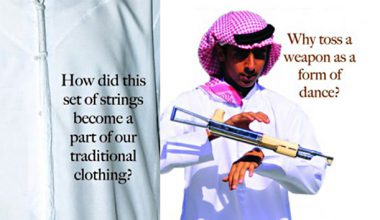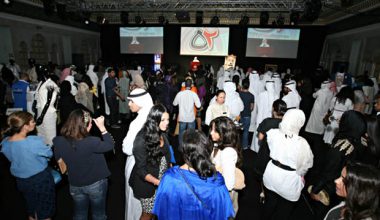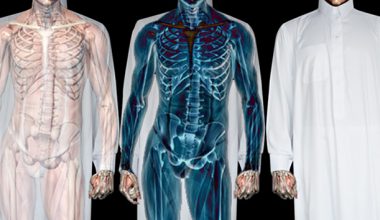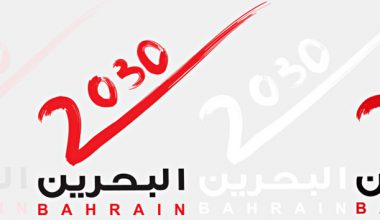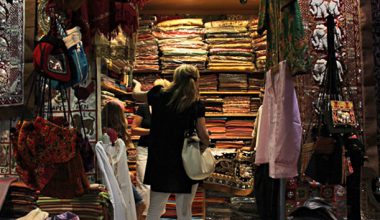Sharjah Art Foundation’s annual comic anthology Corniche, which features illustrations and texts in both Arabic and English, encompasses a wide range of themes—including heritage, science fiction, fantasy, metaphysics, dreams and myths.
Combining research, exploration and experimentation, the project acts as a platform for comic book artists and illustrators in Sharjah and beyond to collaborate and exchange ideas. The artists also share their techniques and experiences through community-led workshops and learning activities.
The first three editions of Corniche only included contributions by invited artists, but for its fourth iteration in 2022, an open call was announced in a bid to expand the pool of local writers and artists. For its fifth edition this year, Corniche has expanded its outreach even further by inviting applications from participants in the GCC region.
Artist and curator Nasir Nasrallah (b. 1984, Sharjah) is the Special Projects Manager at Sharjah Art Foundation. He founded Marsam Al Sahel studio in 2019 for artists to explore art and criticism and enrich the art space with discussions and dialogues. His notable projects include Corniche and The Flying Saucer: Experimental Texts in Science Fiction Literature, which celebrates The Flying Saucer building in Dasman, Sharjah, through 11 mythical stories.
Mouza Al Hamrani is an illustrator and multimedia designer (b. 1995, Ajman). Rooted in her Khaleeji upbringing, her practice revolves around her experiences with cultural inheritances, existentialism, superstition and the human condition. She is the coordinator of the Corniche project as well as a regular contributor. Some of her contributions include Cool Jadda, Slow Again and Evermore.

Marsya Abdulghani: How did the Corniche project start?
Nasir Nasrallah: Corniche took shape following a happy twist of fate during a three-day comic book workshop in 2019. I invited 15 local artists to create a short comic to be produced and showcased at Focal Point, Sharjah Art Foundation’s annual art book fair. Initially, the artists intended to print and produce their comics as independent publications. However, on the last day of the workshop, they decided to compile their comics into a single book, which later became an official Sharjah Art Foundation publication. We decided on Corniche as the title based on the view of the Sharjah Corniche the artists enjoyed from the workshop room at the heritage house Bait Obaid Al Shamsi. We decided to continue hosting our annual meetups in the same room.
Mouza Al Hamrani: I was one of the 15 artists invited to participate in the 2019 workshop. Nasir asked me to help out with the comic book’s layout and publication process. I have been involved in the project since the first edition of Corniche, which I designed. It looks so different compared to the subsequent editions! We were then just getting the hang of putting it all together. Also, the first edition is the only one that has stories longer than six pages. Later, we established a standard format and decided to stick to a set number of pages for each artist so more people could participate. Over the course of five years, we have grown from having 15 artists in the first edition to more than 50 in the upcoming one.
(M.A.): How do you select the themes for each anthology, and what criteria do you consider when inviting artists to contribute?
(N.N.): The publication does not have a specific theme as it follows a free-flowing approach. The artists are encouraged to experiment and explore different styles of storytelling. For the first three editions, we adopted an organic approach and selected artists on an invite-only basis. We asked people whom we had met or worked with or those who followed us on social media. We then decided to expand on this process and created a UAE-wide open call for the fourth edition, where we invited the applicants to submit a proposal and portfolio. We carefully went through each submission and made selections based on the quality of the proposals. This year we expanded the scope further by announcing a GCC-wide open call, which connected us to an even bigger range of talent.

(M.A.): Nasir Nasrallah, as the Special Projects Manager at Sharjah Art Foundation, how do you envision the impact of Corniche on the local artistic community?
(M.H.): Through Corniche, we aim not only to publish a comic anthology but also to build a strong community of artists. We are happy to know that a lot of the artists who meet and collaborate with others to produce this book eventually lead their own meetups. Some of the participating artists become friends outside the scope of this project and even go on to collaborate on other things. Incidentally, Corniche also acts as a directory of local and regional illustrators, which I refer to when collaborators and other entities ask for talent for their projects. It is an ever-growing family of local and regional artists—open and welcoming to artists of all skill levels and backgrounds.
(M.A.): What draws you to participate in Corniche? How do you see your work contributing to the broader themes explored within the anthologies?
(M.H.): Aside from my role as a coordinator for the publication, I also try my best to contribute a comic every year to improve my illustration practice. I won’t call myself a seasoned storyteller or a comic artist, but the beauty of Corniche is that it allows artists from all kinds of backgrounds to contribute to a very diverse collection of visual storytelling. My first story was about a fictional Gen-Z grandmother and how she developed and transformed, while the second and third comics were based on lingering thoughts, so they’re a bit on the existential side of things. Slow Again focuses on isolation and the concept of time during the COVID-19 pandemic, while Evermore is based on the anxiety that comes with a permanent digital existence. My most recent comic, featured in Corniche 4, is a fun highlight of the relationship I have with my name. It centers on how our names have different versions based on who we interact with, how they can have different tones and meanings for different people, and whether one’s name can be a self-fulfilling prophecy. Prior to Corniche, I hadn’t published a comic, so it’s thanks to the publication that I feel comfortable with the genre.

(M.A.): How has the inclusion of texts in both Arabic and English impacted the accessibility and reach of Corniche across different audiences?
(N.N.): As Sharjah Art Foundation’s audience in the UAE and the wider region is quite diverse, we support artists’ freedom of expression by allowing them to use language of their choice. Some of them have even produced comics without dialogue. Although we are keen on producing Arabic content to enrich the cultural landscape in the UAE and the GCC, we still appreciate those who prefer English. This also attracts audiences outside the MENASA region, leading to greater exposure for the artists.
(M.A.): What role do you see Corniche playing in promoting experimental comics and pushing the boundaries of artistic expression in the region?
(M.H.): We are happy and proud that Corniche has given a number of artists the opportunity to be published for the first time. We have received comics that are entirely screen printed or 3D-rendered, and even painted. One of our participants used homemade dolls to tell her story! I have not seen many book projects that allow for this level of freedom and experimentation in terms of content. It truly is an open space for visual artists to experiment with different methods of storytelling—without the constraints of a typical mainstream comic book.
One of the best aspects of being part of the project is meeting and networking with a diverse group of artists. During our annual meetups, artists catch up with each other while they are still working on their individual comics. They exchange tips, tools and tricks during these meetups and also share a massive collection of books for inspiration. As organizers, we are thrilled to witness and support these interactions between participants.


